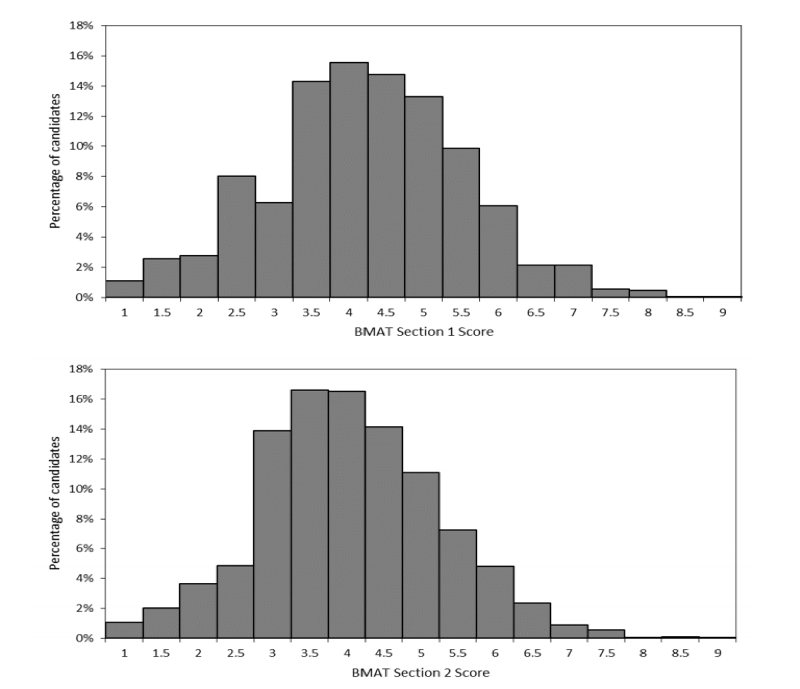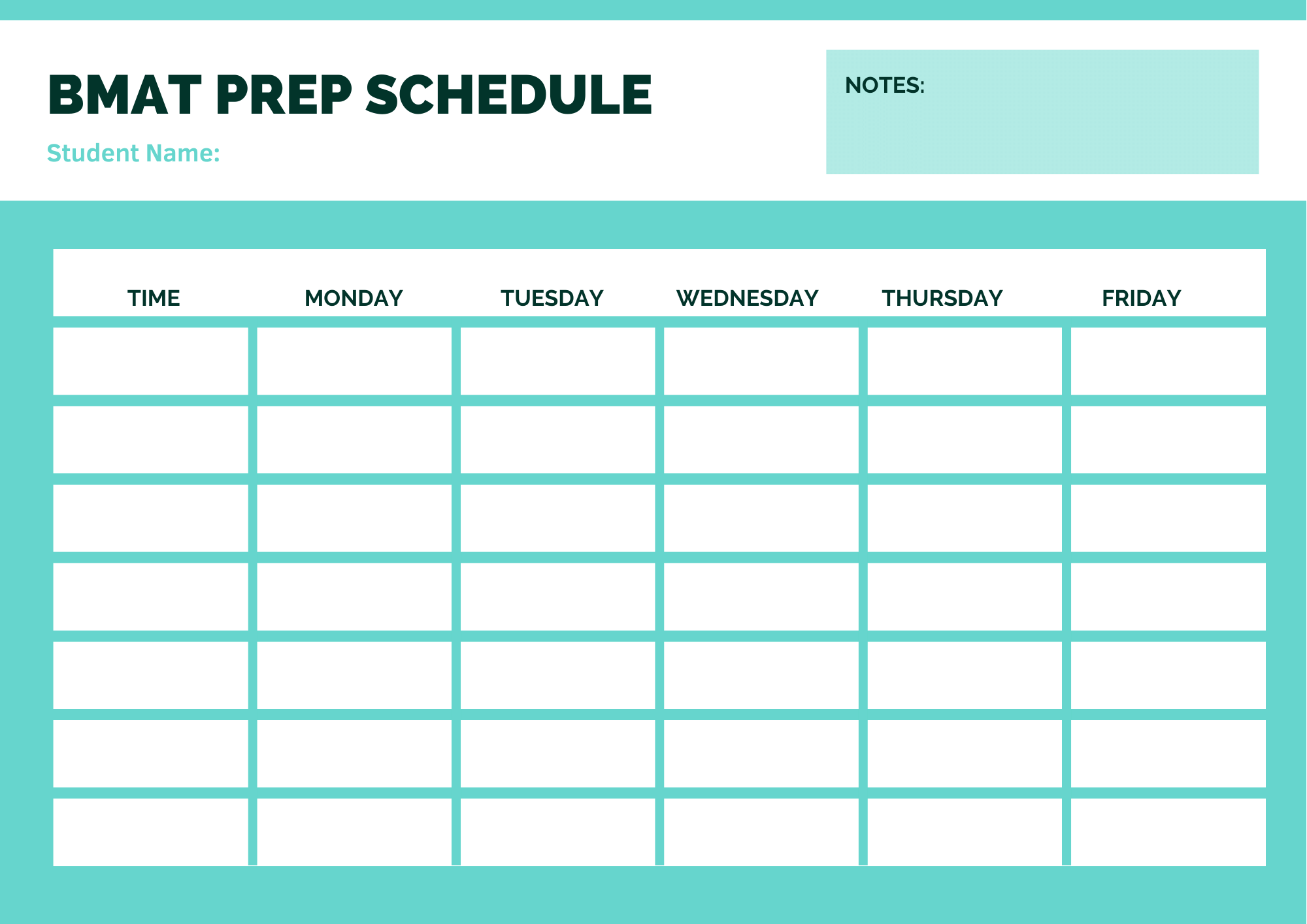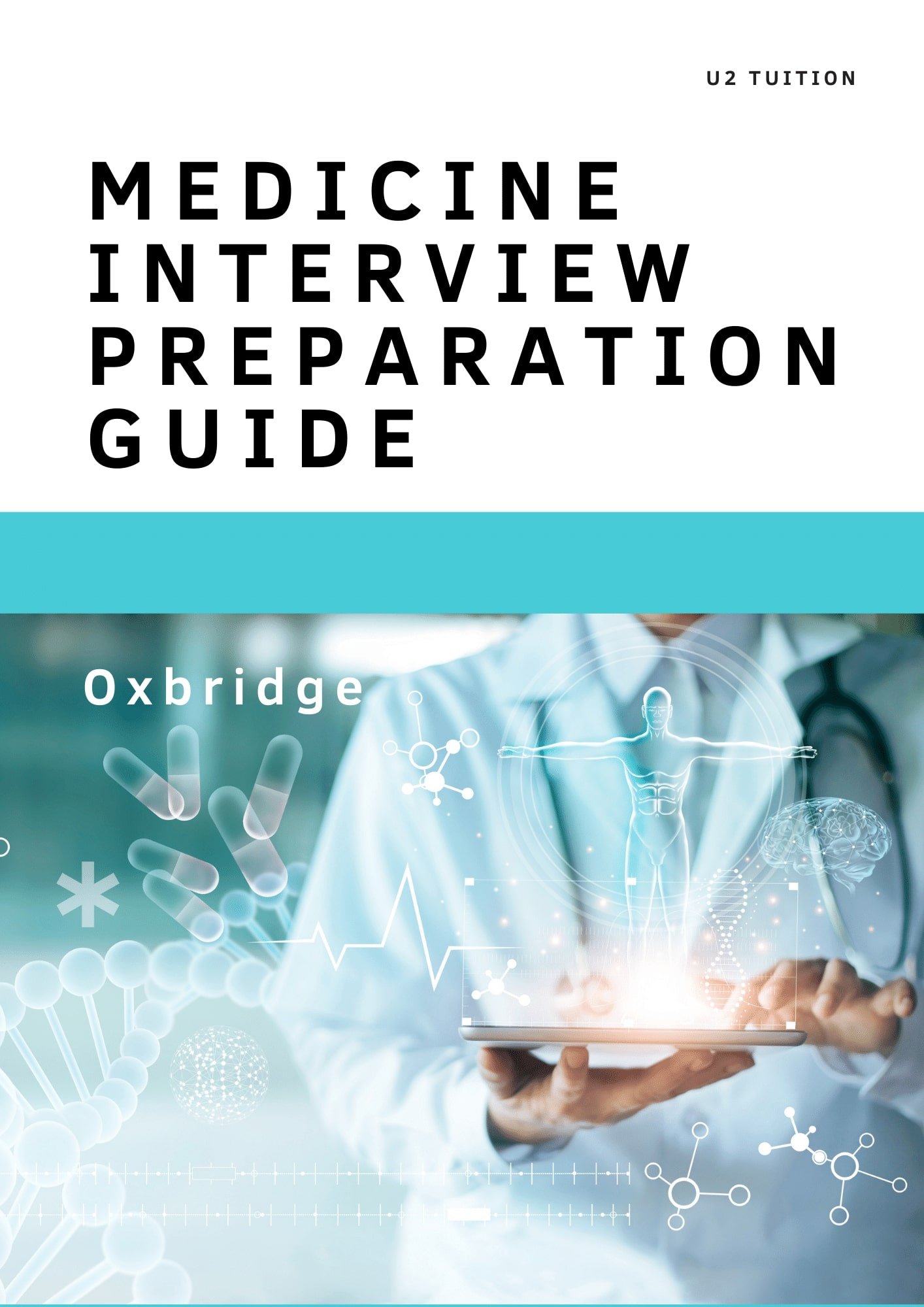Mastering the BMAT Test in 2024: General Preparation Tips And Section Strategies
N.B. The BMAT test will be discontinued for those applying for 2025 entry. Students will take the UCAT.
In this blog, we provide students with general BMAT preparation advice (how to structure your prep, adjust your mindset and gear up for the test), as well as specific guidance on each of the three sections, including an overview of question types and tips/ resources for preparation.
General preparation for the BMAT
Tip 1: Adjust your mindset
The Biomedical Admissions Test is a completely different style of exam to GCSEs and A-levels as the marks are generally awarded in a roughly normal distribution. This means that most candidates will score between 4-5 on sections 1 and 2. Aiming for an 8 or 9 is not the same as aiming for an A*, and beating yourself up over what seems like an average mark isn’t going to help. Most good candidates will score in the 5-6 bracket with excellent candidates scoring 6-7, so this should be your aim.
Source: https://www.admissionstesting.org/Images/563514-bmat-explanation-of-results-2019.PDF
BMAT score distribution 2019
Tip 2. Do dress rehearsals
Make sure you do a few full length mocks near the end of your revision for two reasons. Firstly, as with most exams, it’s a bit of a marathon and practising focussing for that long is important, as well as getting used to the conditions (we don’t know if the BMAT will stay online or go back to paper after COVID). Secondly, the BMAT is essentially three exams back to back as each section is taken away before the next begins. If you have only been revising one section at a time then it’s a new skill to be able to switch mindset from logic/critical thinking to science to essay writing.
Tip 3. Use your time well
The start of year 13 is very stressful for medicine applications. Not only is the pace of your subject studies increasing, but you potentially also have to prepare for UCAT (unless you did it over the summer), the BMAT, and send in your personal statement. Make a timetable of when you want to start beginning BMAT revision based on how much work you want to do. We recommend doing a little bit most days and starting earlier than anticipated. This is going to be much less stress-inducing than cramming in the final two weeks. Additionally, have a plan of what you are covering each day to maximise efficiency e.g practice questions, wider reading, or science revision.
Tip 4. Look after yourself
This follows on from the last point; application time is a tough period but you can get through it! Give yourself a day off each week from anything and everything medicine and focus on your wellbeing. Don’t burnout before you even get an interview.
Section 1
Tip 1. Read the question stem first
The questions have a lot of information in them and it can become very time consuming to attempt to assimilate the information before reading the stem and going back to find the relevant bits. If you read the question stem first you’ll be able to filter out the less relevant bits as you read the extra information. After you have glanced over everything, read the question stem again to make sure you have interpreted it correctly.
Tip 2. Not all questions are the same
Some questions will stump you; this test is not designed for you to get 100% on. However, the questions are all worth the same number of marks. If you have read through everything and don’t know where to start then move on and come back to it later, you’ll be subconsciously processing it as you continue so you might have better luck second time round.
Tip 3. Brush up on your critical thinking
A big part of section 1 involves critical thinking and identifying the logic or flaws in arguments. If you haven’t done any critical thinking courses in the past then invest some of your initial revision on learning argument structure as well as basic flaws and common fallacies. You can get extra practice at identifying these by reading opinion columns or even social media comment threads (I wouldn’t count this as “official revision” though). U2 also have a number of medicine mentors who support students with BMAT, and can guide you through vital critical thinking strategies. Contact us for a free consultation to discuss.
Tip 4. Utilise additional exam resources
BMAT practice questions are the gold standard as they show you the exact style of questions that come up. However, you can get extra practice from some of the aspects of the UCAT examination. For this reason, try to time your UCAT exam with the start of your BMAT revision. This way the skills you’ve learnt can stay fresh. Additionally, you can always use TSA (thinking skills assessment) practice questions for extra content as well.
Extra BMAT questions:
Section 2
Tip 1: Double check the content
The BMAT science questions aim to cover the GCSE syllabus. This means they cover the content from every syllabus, and they aren’t all the same. The knowledge expected is in an assumed knowledge guide. Read it and make sure you have at least covered everything on there; the worst thing that could happen is getting caught out by an obscure module that was not in your GCSE specification.
Tip 2. Know your formulas
Physics seems to be the science that catches people out as a lot of people haven’t looked at it since GCSE. A lot of the physics questions comes down to knowing formulas and, unlike in GCSE (for some anyway), you won’t have an equations page at the front of the exam. Know them inside and out. It’s a step up from GCSE as some questions will require you to use two equations; using the first to get an intermediate answer to put into the second equation.
Tip 3. Understand the material
Another difference from GCSE: past questions don’t come up, but concepts do. It isn’t just about learning random morsels of scientific fact, many of the questions rely on the application of knowledge learned in GCSE. I remember being outraged that one of the chemistry questions in my exam was covering a topic we had learnt in year 13 as opposed to in GCSE. However, applying the basics of science from GCSE will allow you to answer any of the questions regardless of if you continued it at A-level.
Tip 4. Learn to love estimating
There is no calculator in the BMAT, despite some of the questions seemingly deserving one. Work on your mental maths to whittle down the time spent working through the maths answers but, ultimately, estimating saves the most time. A few of the questions will have stupid calculations involved that will take too long to get an exact answer for, and you will probably make an error anyway. The multiple choices reflect this uncertainty and are different enough that rounding and estimating will still guide you to the right answer.
Section 3
Tip 1. Read up on medical principles
To gain top marks in the essay you need to add additional facts. The chances are that, unless you have absorbed a medical library, you won’t have a specific stat or fact for the topics that come up. Instead, focus on general reading such as ethical principles in medicine, healthcare structures in the UK and abroad, and current medical news. This broad knowledge is often applicable to many BMAT essay questions in some form or another. Not only will this be helpful in your essay, it will also aid you in upcoming medical interviews.
Resources:
Medical ethics
NHS structure
Medical news
N.B. Develop a mental library of ‘case study’ examples to work into your writing (rather than merely reading the news and hoping for the best)
Subscribe for free to our co-curricular division, Minds Underground™’s Curious Minds digest to be sent regular STEM resources (including Medicine)
MU Mind-Enhancing Articles Medicine section for blogs on the latest exciting medical developments written by our team of Oxbridge medics
We host a Medical Club every Saturday during term times, where you will discuss & critique the latest medical issues and news, hosted by our Oxbridge medics. The Club is a precursor to our Medicine Summer School, which takes place June-August, see PDF.
Tip 2. Don’t jump into writing
The essay questions are often quite vague or worded in a difficult way to understand. One point to include in your essay is usually to explain the statement/question and so people often let out a sigh of relief if they read a question that they actually understand (make sure not to just reword the statement though). However, there’s more to writing the essay than being able to understand what the question is about. Spend a minute or two sitting and reflecting on each option. It often quickly dawns on you what each question is asking and you may realise you can actually write a much better argument on the more abstract statements. Knowing you can write several solid points is better than being able to explain the question followed by floundering for content.
Tip 3. Plan out properly
Following on from the previous point, take the time to plan. Spend at least 5-10 minutes making a detailed plan. It does not take very long to write down an A4 page of work when you know exactly what you’re writing. The marks are partly awarded on the fluency of your argument and so taking a moment to narrow down your ideas to the best points will stop the examiner getting lost in mediocre waffle. Additionally, you only have one A4 page to write your points on, it’s way less than you think. You don’t want to be getting to your ground breaking conclusion to find you have one line to fit it onto.
Tip 4. Answer the whole question
When you choose your question, there will be guidance on what to include. If you include all of it then you have secured at least a mark of 3. This is nearly always enough to get an interview. Therefore, when you’re drawing up your plan, make sure it answers all aspects of the question. Even if you write university grade material, if you only answer 2 out of the 3 domains you will not satisfy the criteria for a 3 grade. Additionally, this criteria often includes choosing a side in your conclusion. Whilst you don’t have to go 100% in one direction, staying completely neutral does not score well.
Finally, do not be disheartened, it is only natural that your scores in past papers will fluctuate. Practise, practise, practise and all will be okay! Remember that this is not the only part of the admissions process.
By Thomas (5th year medical student at Imperial College London performing in the top 5% of the year)
How can U2 help prepare you for the BMAT & wider medical application?
U2 offer admissions test preparation either as part of our wider Medical School/ Oxbridge Mentoring programmes or as separate ad hoc tuition (book a free consultation to discuss options).
The Process:
1) We suggest a medicine graduate (Predominantly Oxbridge-educated, with experience of other top UK medical schools) as a mentor and send their full CV for review. Our mentors are deeply familiar with the admissions process to study Medicine at top UK Medical Schools and Oxbridge, and we have tutors who specifically specialise in BMAT admissions test preparation.
2) We typically suggest beginning with a 1.5 hour informal assessment/ taster session, where the mentor will informally assess the student’s current performance level for test (and interview if desired). Following this, we issue a report with feedback, and structure a plan to best prepare.
3) BMAT Session Components:
Our customisable BMAT (BioMedical Admissions Test) course is five sessions of two hours each. N.B. This can be customised to the student depending on the level of support required, but gives an indication of what preparation with a BMAT tutor can involve/ how it would be structured.
Frequency of sessions can be decided between student and tutor. Honing the skills necessary to succeed in the BMAT test can begin early in Year 12. When the student and mentor run out of past papers, they will work through similar questions curated by the tutor. We offer BMAT practice online or in-person in London.
Individual sessions from £70/h.





